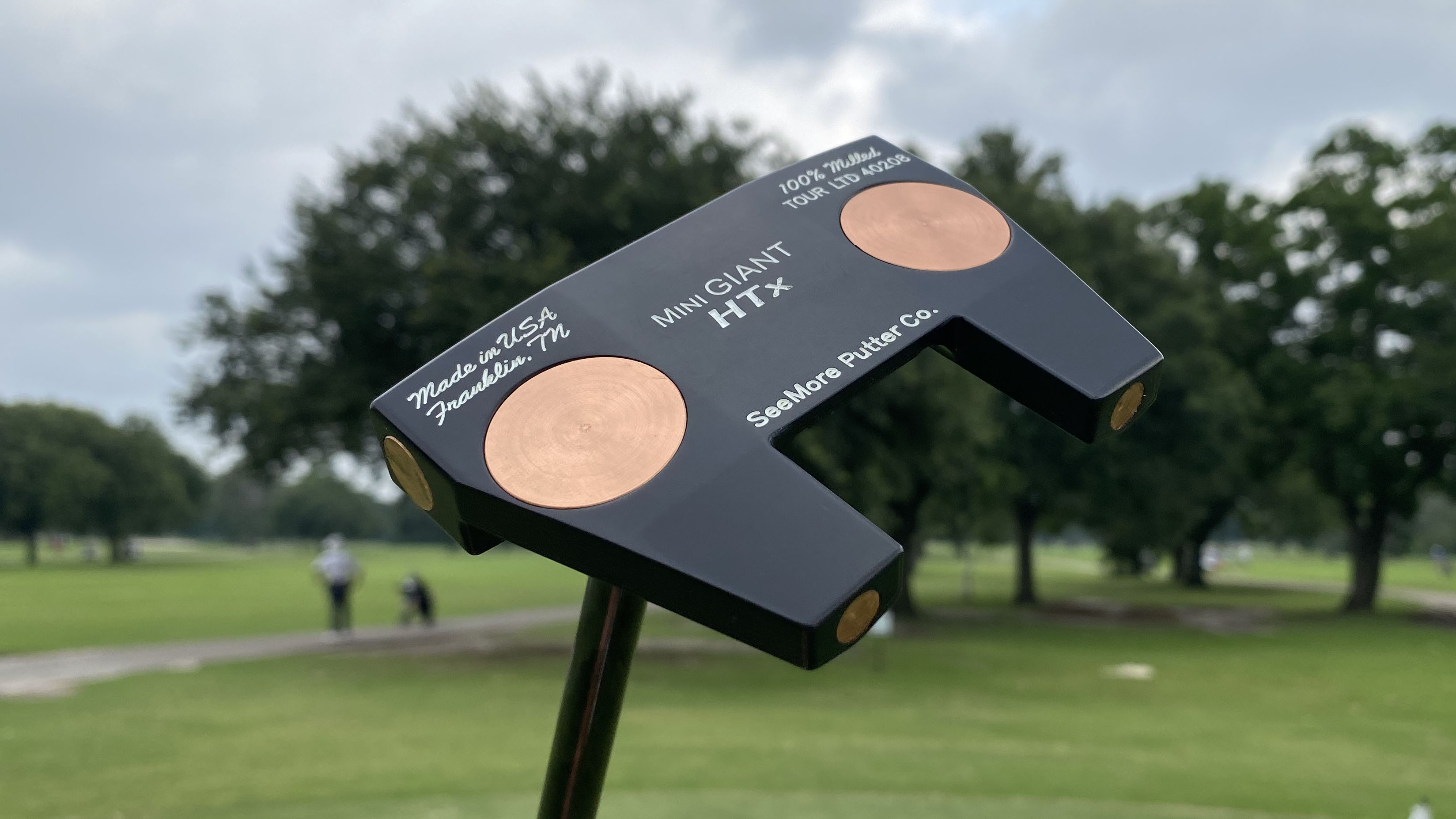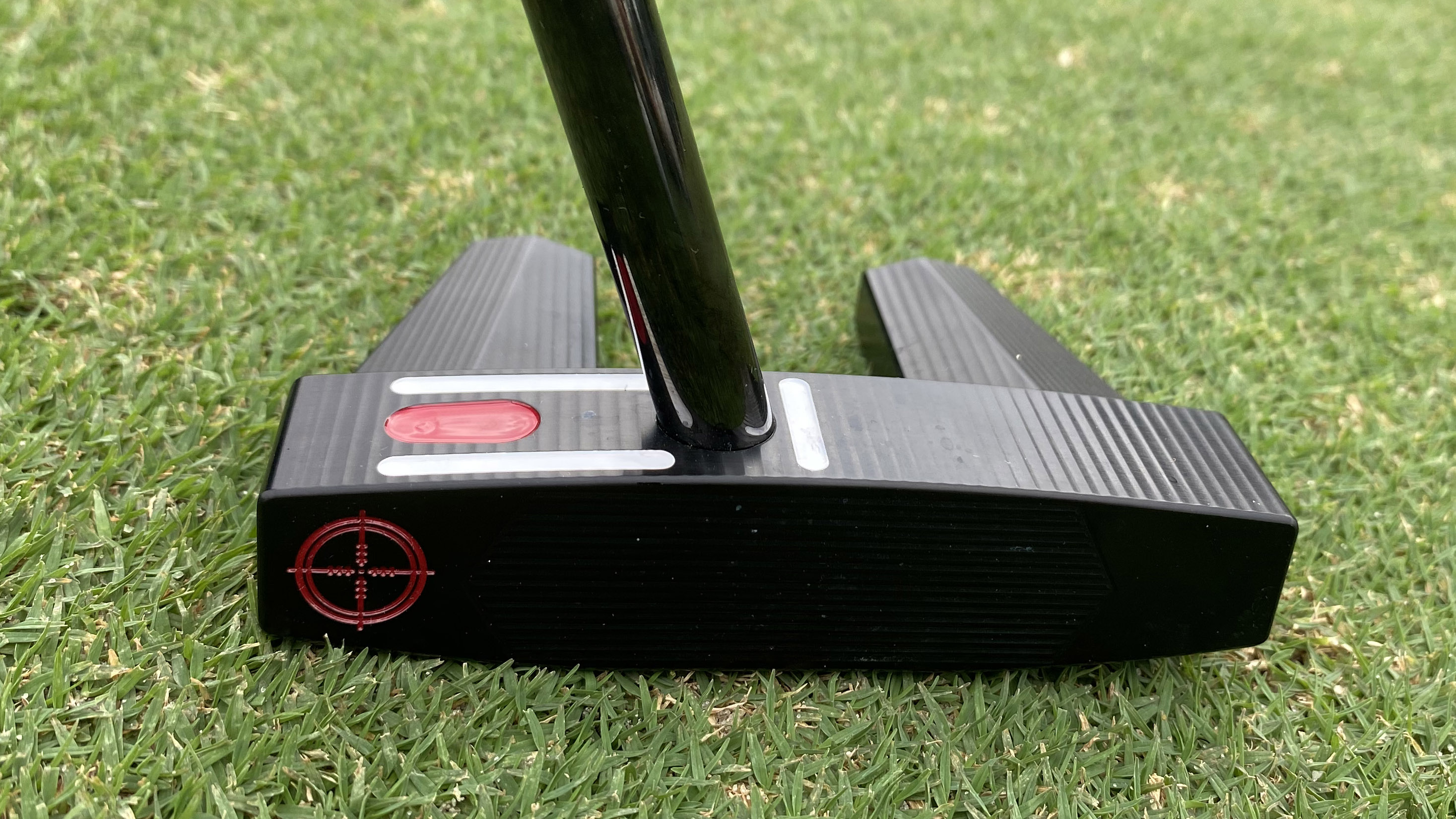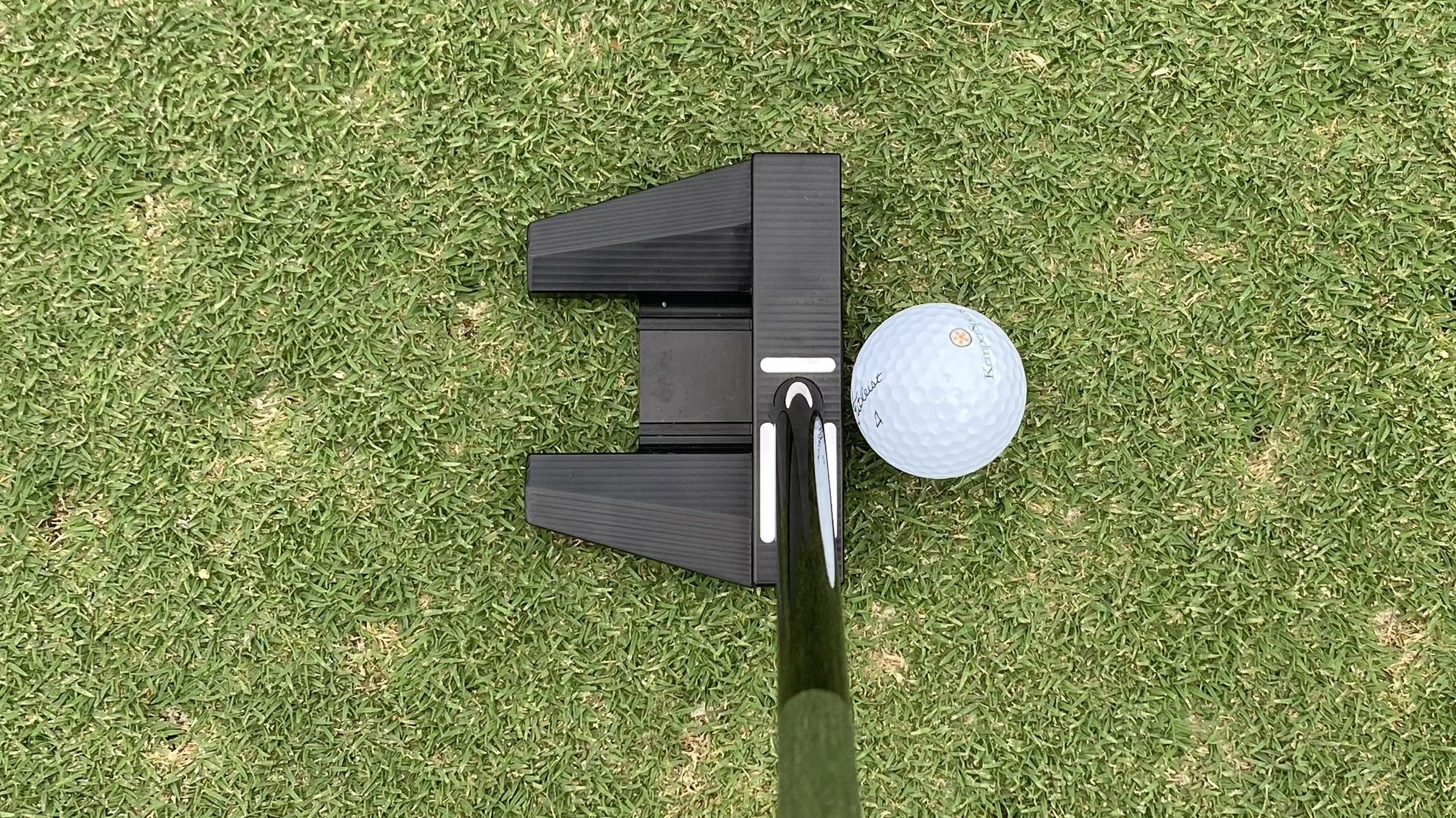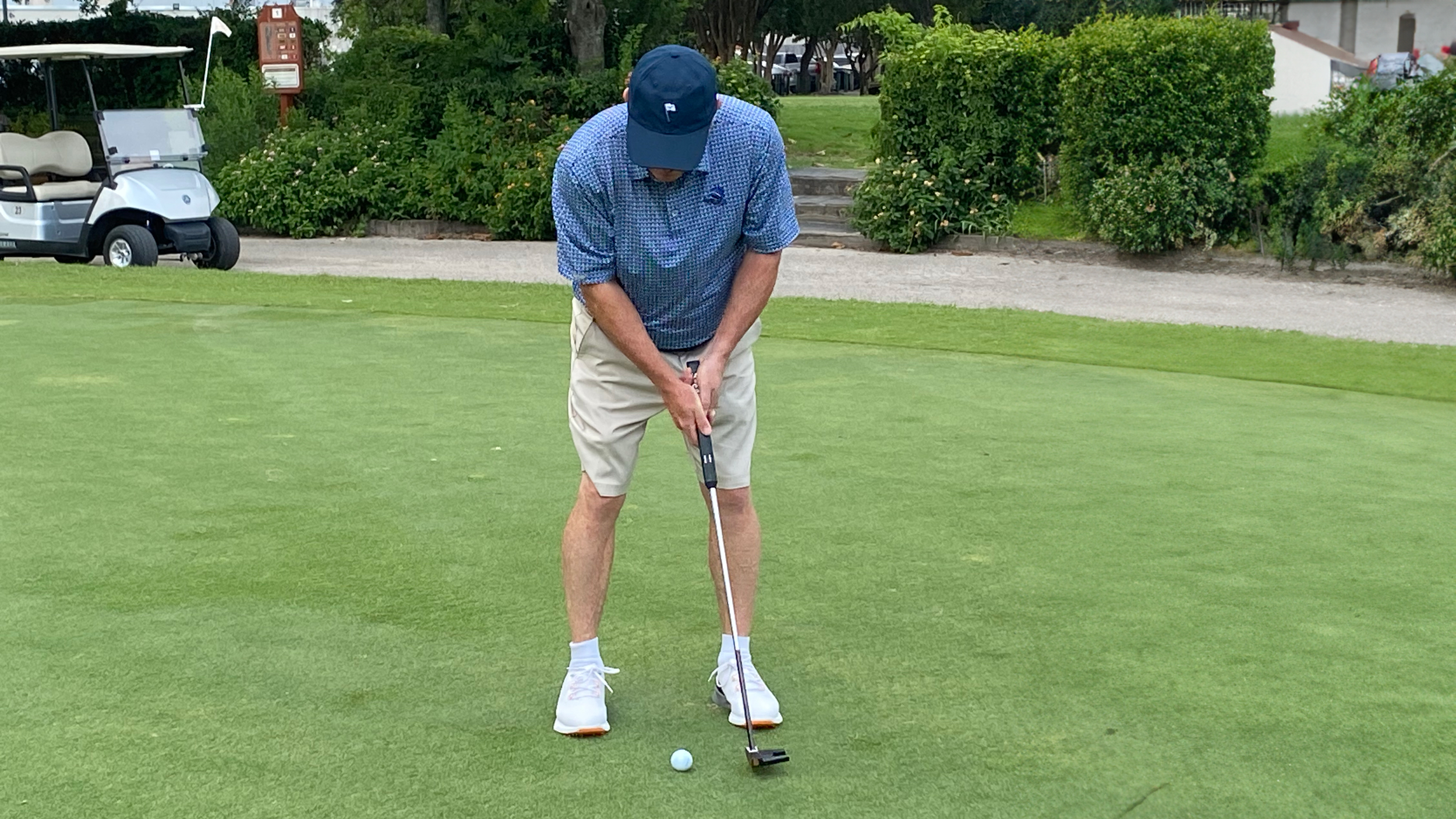
When it comes to putting, for most golfers it’s certainly a combination of feel and technology. If you putt with a straight 8802-style blade, it’s way more of the former. And if you use an Anser-style blade putter, there might be little more technology built into it, but feel and aesthetics certainly play large roles.
SeeMore, on the other hand, can be argued that technology first is what makes these putters popular. More specifically, the company’s RifleScope alignment system is a big part of what separates these putters from others.
In recent years, however, these putters have become more pleasant to look at during address, which can give you even more confidence. SeeMore’s latest offerings – which are variants of the successful Mini Giant line – capitalize on those improved looks as well as quality materials, which combine to give the putters great feel.

For the past couple of years, I’ve been using the SeeMore Mini Giant Deep Flange putter, which was modelled off the large MacGregor Response ZT 615 putter Jack Nicklaus used to win the 1986 Masters. Of course, the MacGregor didn’t have RifleScope. That’s unique to SeeMore, which first came to fame with the late Payne Stewart using the company’s original Bronze FGP putter to win the 1999 U.S. Open at Pinehurst (SeeMore has just released a limited number of commemorative collector’s editions of those putters).
The RifleScope system employs a red dot on the top of the putter (as you are looking down at it). When you set up square, the black bottom of the shaft "hides the red dot." So if you can't see the red dot at address (and throughout the stroke, for that matter) the putter is on plane and square to the target. I don’t forward press and don’t like an offset shaft, so it works well for me, and I’ve been putting fairly well with the Mini Giant Deep Flange.

So naturally, when I saw the company was offering three more versions of the Mini Giant, I was intrigued. The new models include the Mini Giant MDX, which is a full mallet putter with a curved back; the Mini Giant Curve Back, which is more of a blade-like design; and the Mini Giant HTX, which is more reminiscent of an Odyssey AI One putter.
I elected to test the last one, the Mini Giant HTX (all the Mini Giant models retail for $400). I’m probably a little more of a mallet person anyway.
First off, the straight- and center-shafted HTX sets up very well at address, like all of the best putters do. It looks like it’s easy to keep square to the target line, and it is. It’s pretty much face-balanced, but the biggest factor is the extreme heel and toe weighting combined with back-end weighting, which produces a a high MOI (moment of inertia). The head comes with six heavier milled copper weights embedded in it – smaller ones on each side and in the very back, and two more much larger ones in the sole of the putter.
The HTX features a 100-percent milled body made with 6061 aircraft aluminum, which gives it a soft feel and a pleasant sound when striking the ball.

I don’t use the RifeScope so much throughout the stroke as I once did, but I found if I simply use it to set up, it was very easy to get aligned, then let the putter basically swing itself back and through.
As for how it performed on the course, I played several rounds with it. My last round came in a tournament, and I had 32 putts, which is certainly respectable. And that came on very inconsistent greens. I missed a 3-footer through some crabgrass that would have normally gone in, and I had several putts lip out. I felt like it could have easily been a sub-30 round.
The bottom line is that I like the way this putter – which is fitted with a 33-inch .460 tip shaft by True Temper and a SeeMore Quad Tour grip – performed for me. For now, this is my everyday putter. Should I struggle a bit and give it a timeout, I’ll probably put the Mini Giant Deep Flange putter back in play for a while just to change things up.
The HTX, thankfully, is also available in both right- and left-handed models, and there are a variety of grip options, of course.







